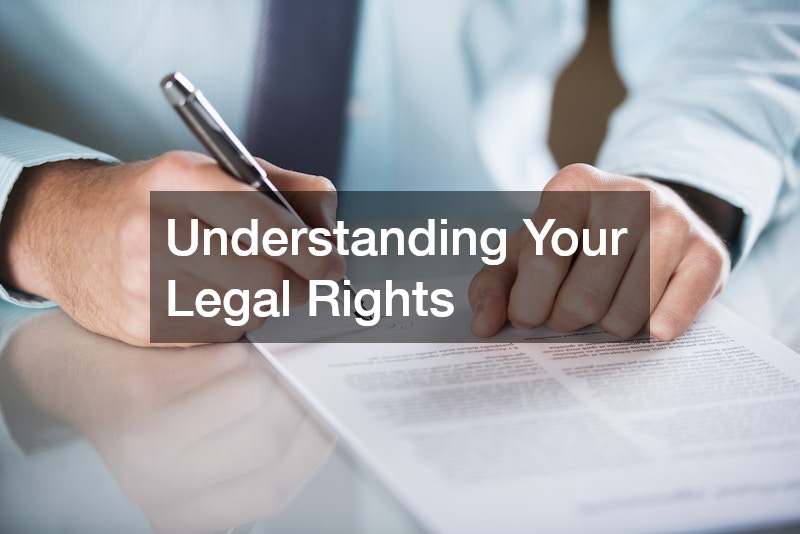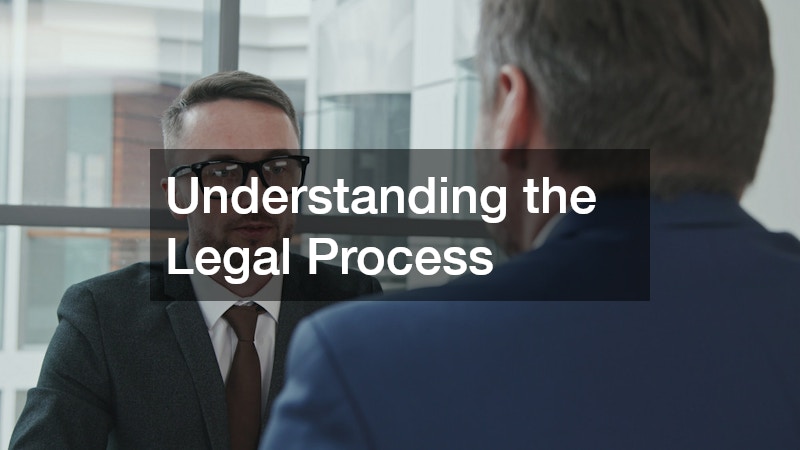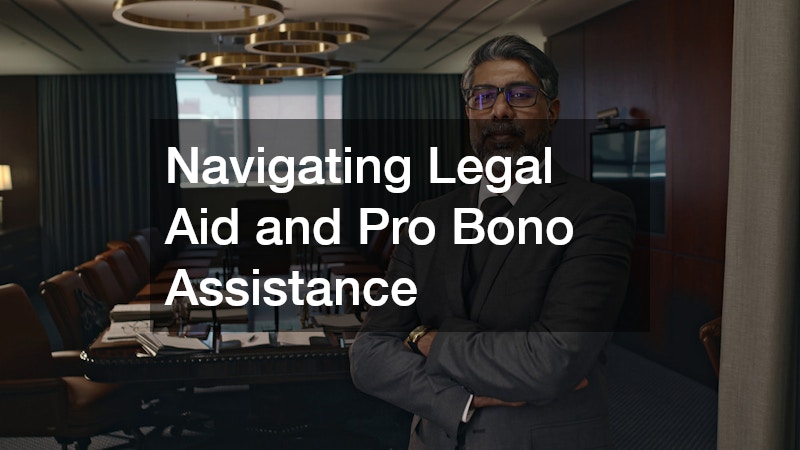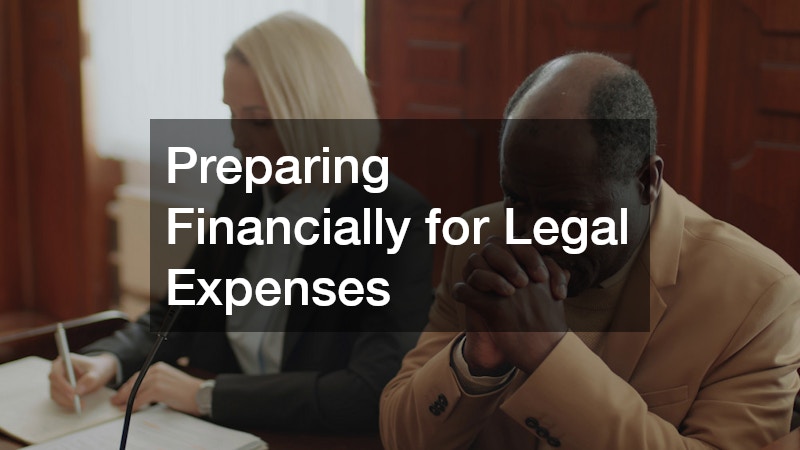Life can be unpredictable, and legal issues often arise when you least expect them. Whether it’s a dispute with a neighbor, an unexpected injury, a business disagreement, or questions about your estate, being prepared for potential legal problems can save you time, stress, and money. Many people wait until they are already in the middle of a crisis to seek legal help, but preparation is key to handling legal matters efficiently and confidently.
This article provides a comprehensive guide on how to prepare for any legal problem by understanding the essential steps and considerations involved. From learning your rights to finding qualified professionals, organizing documentation, and maintaining effective communication, you can build a strong foundation that helps you navigate challenges with clarity. Preparation doesn’t just mean having a lawyer’s number on hand—it means being informed, proactive, and strategic about protecting your interests before an issue escalates.
We’ll explore practical steps for ensuring you’re ready to handle legal situations in any area of life, whether personal, financial, or professional. You’ll learn the importance of understanding your rights, selecting the right legal representation, managing documentation, and even preparing financially for unexpected legal expenses. By establishing these habits early, you can ensure that when a legal problem arises, you’re not scrambling for solutions—you’re already prepared with knowledge, resources, and a clear plan of action.
Understanding Your Legal Rights

The first step toward being prepared for any legal problem is to understand your legal rights. Knowing what you are entitled to under the law empowers you to make informed decisions and recognize when your rights have been violated. For instance, in matters of family, property, or inheritance, consulting estate planning attorneys can help clarify what protections and obligations apply to you and your loved ones.
Legal rights extend across many areas—consumer rights, employment rights, tenant protections, and more. By becoming familiar with these, you can identify when professional legal help might be necessary. Many people underestimate how often everyday actions—signing a lease, entering into a contract, or sharing content online—carry legal implications. Understanding these basics allows you to act confidently and avoid missteps that could lead to disputes.
It’s also important to stay informed about changes in the law. Legislation evolves, and new regulations may affect how you manage your property, business, or personal matters. Regularly reviewing credible legal resources or attending community legal workshops can help you stay up to date. The more you know about your rights, the easier it will be to protect them when challenges arise.
Finding the Right Legal Representation
When legal issues arise, having the right attorney by your side can make a significant difference in the outcome. The process of finding an attorney should be intentional, not rushed. If your legal problem involves injury or negligence, for example, a personal injury lawyer will have specialized expertise in handling claims, negotiating settlements, and representing clients in court.
Different types of lawyers specialize in specific areas of the law, so it’s crucial to choose one whose background aligns with your situation. For example, a family lawyer is best suited for divorce or custody matters, while a business attorney would handle contract disputes or corporate issues. Begin by researching potential lawyers in your area, reading reviews, and verifying their credentials through local bar associations.
Consultations are also valuable opportunities to gauge compatibility. A good lawyer should listen attentively, explain complex legal concepts in understandable terms, and provide honest expectations about possible outcomes. Avoid choosing a lawyer solely based on advertisements or price—experience, communication, and trustworthiness are more critical factors.
Ultimately, establishing a relationship with a reputable legal professional before you need one ensures that when challenges occur, you can act quickly and confidently.
Gathering and Organizing Your Legal Documents
One of the most practical ways to prepare for legal problems is by keeping your legal and financial documents in order. Disorganization can lead to unnecessary stress, lost time, and even unfavorable legal outcomes. Whether you’re preparing for bankruptcy, a property sale, or personal disputes, staying organized gives you control over the situation.
In cases involving debt restructuring or financial hardship, working with a chapter 13 lawyer can help you understand which documents you need to gather and how to manage them efficiently. Commonly required items include tax returns, bank statements, contracts, deeds, and correspondence related to your case.
To stay organized, consider creating both physical and digital copies of all important documents. Store physical files in a fireproof safe and back up digital versions on secure, encrypted drives or cloud storage. Label each folder clearly and update records regularly, especially after significant life changes such as marriage, home purchases, or business ventures.
Having your paperwork in order doesn’t just help you in emergencies—it also demonstrates responsibility and readiness when working with legal professionals.
Understanding the Legal Process

Many people find the legal process intimidating, but understanding the basics can help reduce anxiety and improve outcomes. Legal proceedings often follow a structured path that includes filing documents, discovery, negotiation, and potentially trial. By familiarizing yourself with these stages, you’ll know what to expect and how to prepare.
For example, if you’re involved in a collision or injury claim, a car accident attorney can walk you through each step, from filing insurance paperwork to gathering evidence and negotiating settlements. Knowing how the process works helps you communicate effectively and make strategic decisions at each stage.
The legal system is built on timelines and documentation. Missing deadlines or failing to follow procedures can harm your case. Therefore, maintaining awareness of each phase—initial filing, responses, pretrial motions, and hearings—is essential. When you understand the process, you can stay proactive rather than reactive.
It’s also valuable to learn about dispute resolution options outside the courtroom, which can save both time and money. Understanding your role and responsibilities within the process helps you maintain confidence and control throughout your legal journey.
Communicating Effectively with Legal Experts
Clear communication is one of the most important components of successful legal preparation. Miscommunication or incomplete information can lead to misunderstandings, delays, or unfavorable outcomes. When working with any legal professional, such as an accident lawyer, it’s crucial to be honest, organized, and proactive in your exchanges.
Start by keeping a written record of all communications, including emails, letters, and meeting notes. This not only ensures accountability but also helps clarify details later. During consultations, come prepared with questions and documentation. The more precise and factual your communication, the more effectively your lawyer can represent you.
Avoid using overly emotional or speculative language—focus on facts and evidence. Legal professionals rely on accurate information to build strong cases, and clear communication fosters mutual trust.
It’s also wise to clarify how your attorney prefers to communicate—whether through email, phone calls, or secure portals—and agree on realistic response times. Effective communication ensures that you remain informed about your case’s progress and that your attorney can act quickly when new developments occur.
Protecting Your Interests in a Legal Dispute
When involved in a legal dispute, your goal should be to protect your interests without escalating conflict unnecessarily. This requires patience, preparation, and professionalism. If the matter involves property, inheritance, or family estate issues, consulting an estate lawyer office can provide critical guidance on safeguarding your assets and ensuring compliance with legal requirements.
Before entering any negotiation or court proceeding, gather all relevant evidence and documentation. Know your rights, review your legal options, and stay open to advice from your attorney. Emotional reactions often lead to poor decisions, so maintaining composure is essential.
Protecting your interests also means avoiding public discussions about ongoing legal matters. Sharing details online or with acquaintances can compromise confidentiality and affect the case’s outcome. Always communicate directly with your attorney before making public statements or signing any documents.
By remaining informed and methodical, you can minimize risks while ensuring that your legal and financial interests remain secure throughout the dispute.
Navigating Legal Aid and Pro Bono Assistance

Legal services can be costly, and not everyone can afford to hire a private attorney. Fortunately, many organizations offer free or low-cost assistance for individuals who qualify. If you’re facing issues related to estate planning or end-of-life decisions, connecting with wills attorneys can help you draft or revise legal documents even on a limited budget.
Legal aid societies, nonprofit organizations, and law school clinics often provide pro bono services for those in financial need. These programs can help with family law cases, tenant disputes, immigration matters, and more. Eligibility is typically based on income and the nature of the case.
If you qualify for legal aid, take full advantage of it by preparing all necessary documentation and staying responsive throughout the process. Even though the assistance may be free, it’s still important to treat your case with professionalism and diligence.
Exploring available resources before a crisis occurs ensures that you know where to turn for help if unexpected legal challenges arise.
Maintaining a Record of Legal Interactions
Documentation is your strongest defense in any legal matter. Maintaining a clear and detailed record of your interactions ensures transparency, accountability, and consistency. This includes keeping track of phone calls, written correspondence, meeting notes, and signed agreements.
If your case involves criminal allegations or requires defense preparation, working with a criminal defense attorney can help you organize records that strengthen your position in court. Accurate documentation can make or break a case, as it provides tangible evidence of your actions, communications, and compliance with legal procedures.
Use a consistent system for recording dates, times, and participants in every legal interaction. Keep a log of communications and store all relevant documents securely. In complex cases involving multiple parties, these records are invaluable for clarifying misunderstandings and supporting your testimony.
Maintaining these records also helps streamline collaboration with your attorney, enabling them to present a well-supported argument on your behalf.
Understanding Alternative Dispute Resolution (ADR)
Not every legal conflict needs to end up in court. In fact, alternative dispute resolution (ADR) methods such as mediation and arbitration can save time, money, and emotional strain. Understanding how these options work allows you to choose the best path for resolving disputes efficiently.
For individuals dealing with issues related to benefits or compensation, consulting a social security attorney can provide insight into how ADR processes might apply to your case. Mediation involves a neutral third party who helps both sides reach a mutually agreeable solution, while arbitration involves a more formal process where an arbitrator makes a binding decision.
These methods emphasize cooperation and communication over confrontation. They also tend to preserve relationships, making them particularly useful in family or business disputes. By understanding ADR, you can often achieve resolution faster and with less financial burden than through litigation.
Exploring these options before pursuing formal legal action demonstrates foresight and a willingness to find balanced solutions.
Preparing Financially for Legal Expenses

Even when you’re not currently involved in a legal dispute, it’s wise to prepare financially for potential legal expenses. Legal fees, court costs, and related expenses can accumulate quickly, particularly in complex cases. Creating a financial plan helps you handle these costs without jeopardizing your stability.
Consulting with litigation lawyers can help you estimate potential costs for various legal services and understand what financial commitments might arise in your situation. Establishing an emergency legal fund is a smart strategy, much like maintaining savings for medical or home repairs.
Additionally, consider insurance products that offer legal protection or coverage for specific situations, such as liability or professional errors. Many legal firms also offer flexible payment plans or contingency fee arrangements, allowing you to manage costs more effectively.
Financial preparation not only provides peace of mind but also ensures that you can act quickly when legal assistance is required. Knowing that you have a plan in place allows you to focus on resolving the issue rather than worrying about affordability.
Legal challenges can arise from unexpected circumstances, but preparation transforms uncertainty into control. By understanding your rights, selecting qualified professionals, and maintaining organized records, you place yourself in a position of strength rather than vulnerability. From consulting with experienced attorneys to managing financial readiness and exploring dispute resolution options, every step of preparation enhances your ability to respond effectively to life’s legal obstacles.
Ultimately, being prepared doesn’t mean expecting trouble—it means being ready to handle it wisely if it comes. By knowing how to prepare for potential legal challenges, you can navigate legal issues more effectively and achieve the best possible outcomes. Knowledge, organization, and proactive planning are your best defenses in an unpredictable world.



